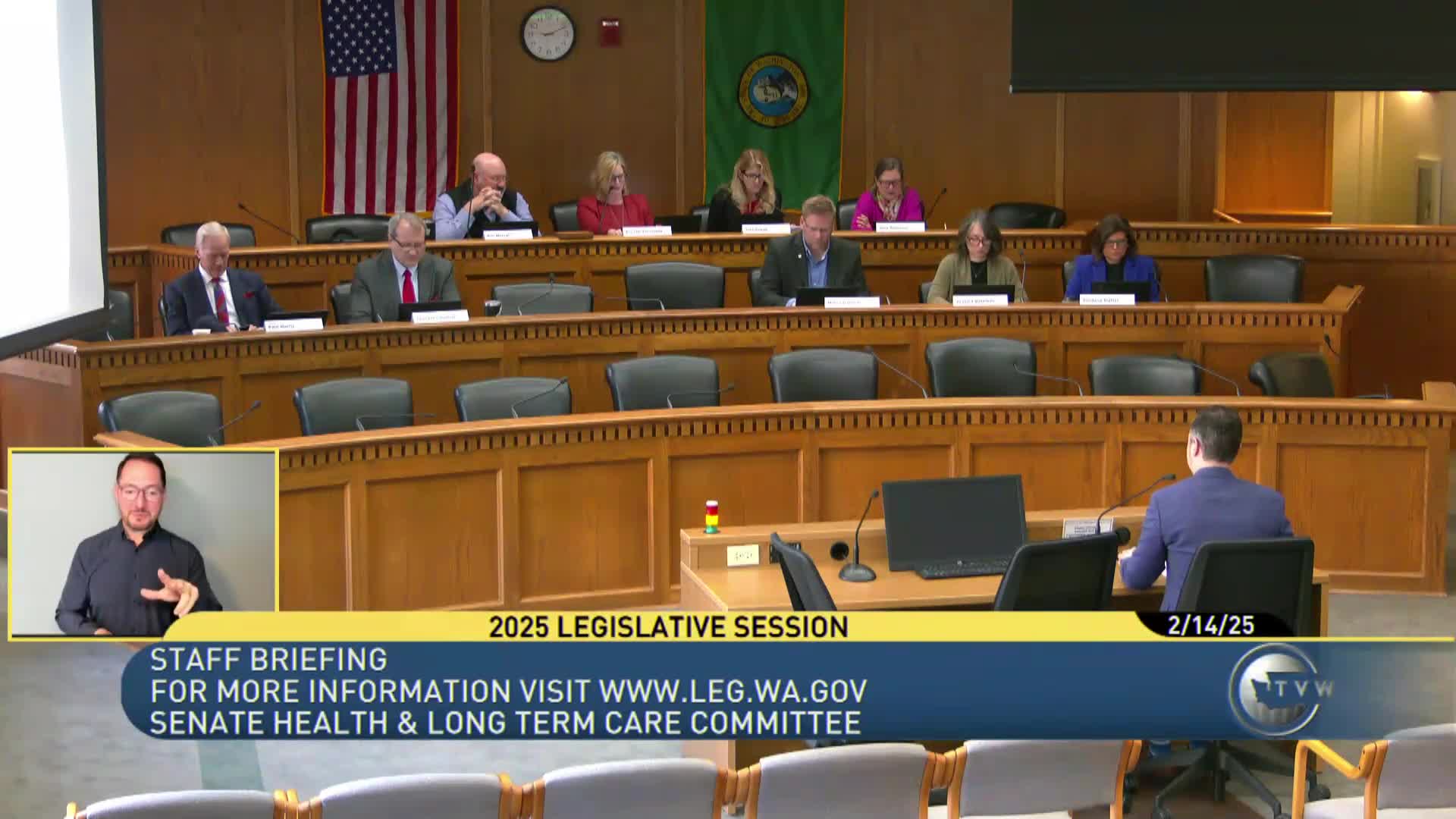Long, divided hearing on bill to ban flavored tobacco and menthol products draws wide testimony
Get AI-powered insights, summaries, and transcripts
Subscribe
Summary
Senate Bill 5183 would ban sale, display and marketing of flavored tobacco, nicotine and vapor products beginning Jan. 1, 2026; the Liquor and Cannabis Board would enforce the prohibition. The committee heard extensive pro and con testimony from physicians, educators, youth, retailers and industry representatives.
Senate Bill 5183, sponsored by Sen. Tawanna Nobles, would prohibit retailers from selling, displaying, marketing or advertising flavored tobacco, nicotine or vapor products (including menthol cigarettes and "entertainment vapor products") beginning Jan. 1, 2026. The Liquor and Cannabis Board would enforce the law, including license suspension and monetary penalties, and the Department of Health would implement a statewide prevention and awareness campaign.
Nut graf: Supporters called the bill a necessary public-health step to reduce youth initiation, noting industry targeting of Black, Native American, LGBTQ+ and low-income communities with menthol and flavored products. Opponents, including independent retailers, vape-shop owners and industry groups, warned a statewide flavor ban would push sales into illicit markets, hurt small-business revenue and eliminate state tax revenue currently used for cancer research and public-health programs.
Testimony highlights: Public-health and medical witnesses cited youth addiction statistics and cardiovascular risks. Dr. Ruchi Kapoor (cardiologist) told the committee that vaping increases blood pressure and arterial stiffness and urged removal of flavorings that attract youth. Volunteer and advocacy groups described peer pressure and easy access for students; a 14-year-old testified that vaping was socially pressured at school. Jonathan Bricker (Fred Hutch research scientist) said data from other states show flavor bans were followed by lower youth tobacco use and that a menthol ban would prevent thousands of heart attacks per million menthol users.
Opposition and industry concerns: Retailers and convenience-store associations said flavored products account for a large share of nicotine sales and that bans would push sales across borders or into illicit markets; several witnesses argued enforcement would be difficult and disproportionately harm small, minority-owned stores. Providers of adult-only vape shops urged stricter packaging and enforcement of age restrictions rather than a full ban. Industry witnesses noted the state vapor tax contributes to the Andy Hill CARE Fund and other public-health funding.
Enforcement and tribal consultation: The bill includes a rebuttable presumption for flavoring if manufacturer or retailer communications indicate taste or smell other than tobacco; the governor may consult with federally recognized tribes about sale prohibitions on tribal lands. The Liquor and Cannabis Board would be empowered to suspend retailer licenses and seek injunctive relief.
Public engagement: The committee record showed large numbers of individuals signed in both for and against the bill. Committee staff reported 172 pro (not wishing to testify), 194 con (not wishing to testify) and 4 other sign-ins not wishing to testify; many witnesses testified both in-person and remotely during a lengthy hearing.
Ending: The committee closed testimony after an extensive, often emotional hearing; no committee vote was taken on Feb. 14.
